My Comedy Career: Martin Collins & Alex Finch
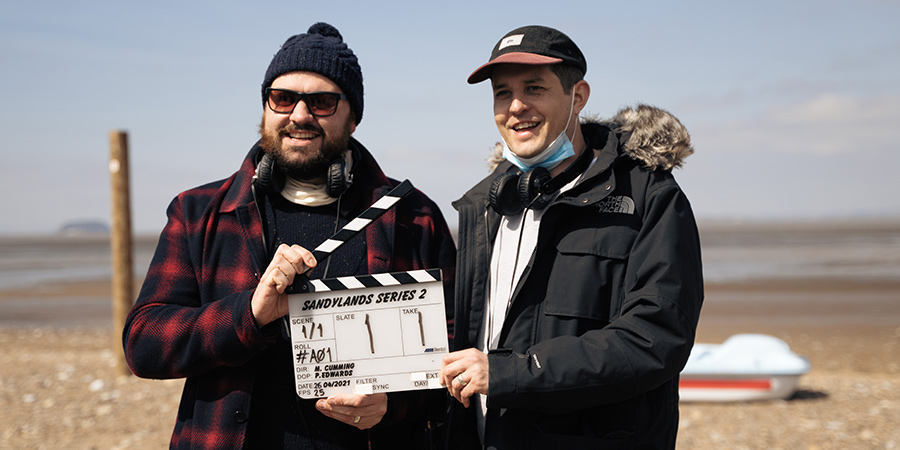
With a second series of Sandylands landed on Gold, it seems like a great time to talk to writers Martin Collins and Alex Finch about what they do, and how they do it.
Tell us what you do in your job.
Martin: We write comedy under the banner 'Collins and Finch'. There's no real reason Collins comes first in that... Just sounded right...
Alex: ... to Martin. We love to tell stories that hopefully make people laugh but also take them on a bit of a journey.
Martin: We're probably best known for our latest sitcom, Sandylands, which stars Sanjeev Bhaskar, Tracy-Ann Oberman, Simon Bird, Sophie Thompson and David Walliams. And Hugh Bonneville (with one eye).
Are there any misconceptions as to what you do?
Alex: Probably that we're rolling in cash.
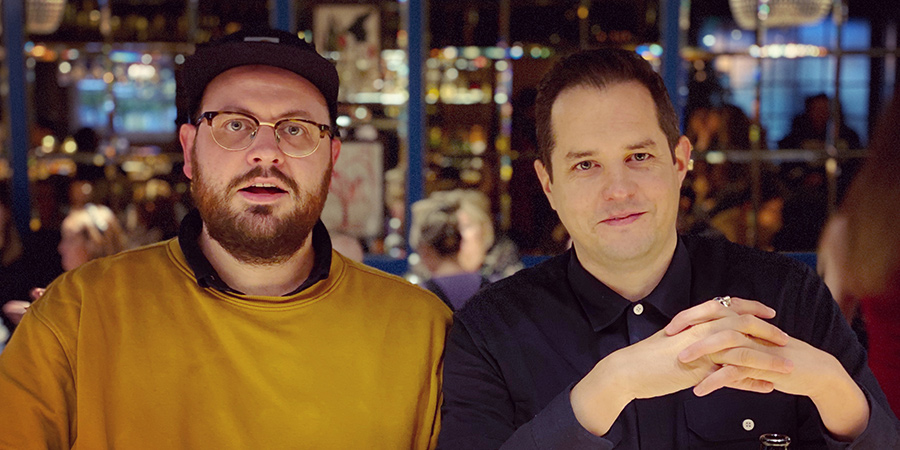
How did you first get involved in the comedy industry?
Martin: We both met through a CBBC kids show called Big Babies. I was one of the leads and Alex was the 'Voice of Nan'.
Alex: Seminal.
Martin: We just started writing and filming sketches together, pulling favours and begging people to get involved. This would soon become our first project, This Glorious Monster (watch here). They were sketches based around a world of 'everyday wrong'uns' or situations that we all find weird... Like an optician who likes to give your nose a little lick as he moves from one eye to the other with his little microscope thingy.
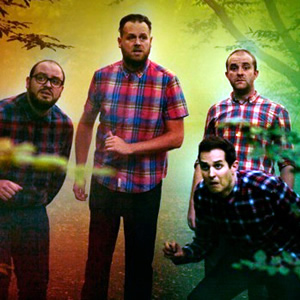
Alex: We then performed our stuff live around London and in Edinburgh, meeting TV producers and really nailing down our style. From there we started writing short films and sitcom pilots - eventually one of them got made!
What key skills do you need to be able to do your job well?
Martin: An Alex....
We're a team - we compliment each other greatly. Outside of that, I think people watching and observation is key.
Training yourself to really flow in ideas and dialogue. A lot of our writing is through ad-libbing, that's a muscle that needs constant use.
You also need to be open to notes from other people and expectant that your idea will go through many drafts. Stay open minded and keep learning all the time.
Alex: Obviously loving comedy and knowing how to tell a joke helps, but the most important thing is being able to work as a team, be really motivated and have a healthy dose of self-belief. It takes a lot of hard work to make any kind of impact - at least it did for us.
What has been your biggest career achievement to date?
Alex: Series 2 of our own show, Sandylands, has been an incredible journey - particularly being able to work with the most talented cast, crew and production team we could ever have wished for.
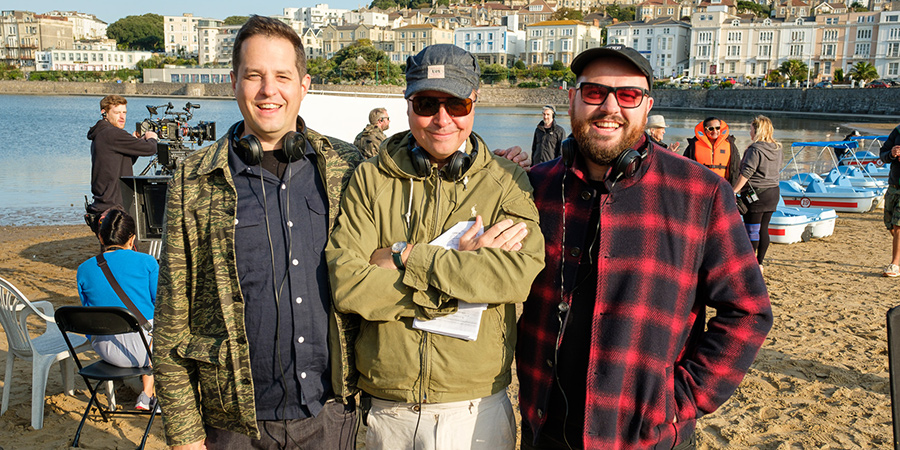
Martin: Very proud of the moment that Michael Cumming (director of Toast Of London, Brass Eye, etc) said how much he'd like to direct the project. It was a huge encouragement to us that he saw the world we were aiming for and wanted to bring that to life. He doesn't do many new projects. We've learnt a lot from both him, and Jo Sargent (our executive producer at King Bert) who took a punt on us.
And what has been the biggest challenge/disappointment?
Alex: Every rejection is challenging, whether it's a channel turning down a new script that you've poured you heart and soul in to, or a bad review. Luckily for us we've never had a drought of ideas, so we just keep moving forward.
Martin: Writing through lockdown. Sandylands Series 1 came out the day the first lockdowns were being announced. Everyone was watching the news. So Series 1 took a bit of time to really get going (thank god it did). When we met with the channel again, they felt we needed something new for Series 2 to really relaunch the show as it had been delayed due to the pandemic.
We had already written five out of the six episodes, and we pretty much had to scrap them all and start again.
It was a painful moment, but one that I think we reacted well too. There's no time for feeling hurt by it. You have a job to do and a new challenge in front of you. You just have to get cracking.
And they were right. Series 2 was much better for it.
Alex: Oh yeah, THAT. I take my answer back.
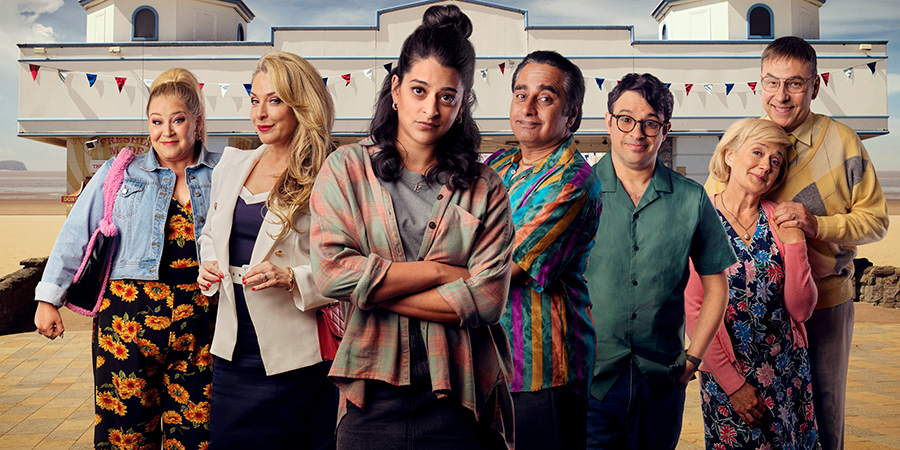
Talk us through a typical day.
Alex: We tend to meet in a little workspace at around 10am - have a coffee and a catch up, before we start throwing ideas around. Some days we'll be beating out a new episode idea - others we'll be passing a laptop back and forth, polishing a script.
Martin: By about mid afternoon, we're comedically spent - but we'll always phone or text each other with silly ideas throughout the rest of the day.
Tell us a trick/secret/resource that you use to make your job quicker/easier.
Alex: It took us a long time to learn how to plan a show / narrative driven series - planning really is everything. We spend a lot of time beating out episode and series arcs, thinking about motivations and fleshing out characters before we even put pen to paper. We also take notes all the time - it's amazing what brilliant ideas can get lost.
Martin: Write what / who you know and what you see around you.
I constantly write notes on my phone of anything I see that's funny. I'll refer back to it often. Especially characters you come across when you're out and about. Reminding myself of the characters as much as possible helps inform everything. What they're wearing, walking, tone, mannerisms. As Alex says, you forget otherwise.
Doing research is a must. Get amongst the places you're writing about. When we wrote Sandylands we took several trips to the British seaside. Blackpool, Southend, Margate. These trips wrote so many of the jokes for us.
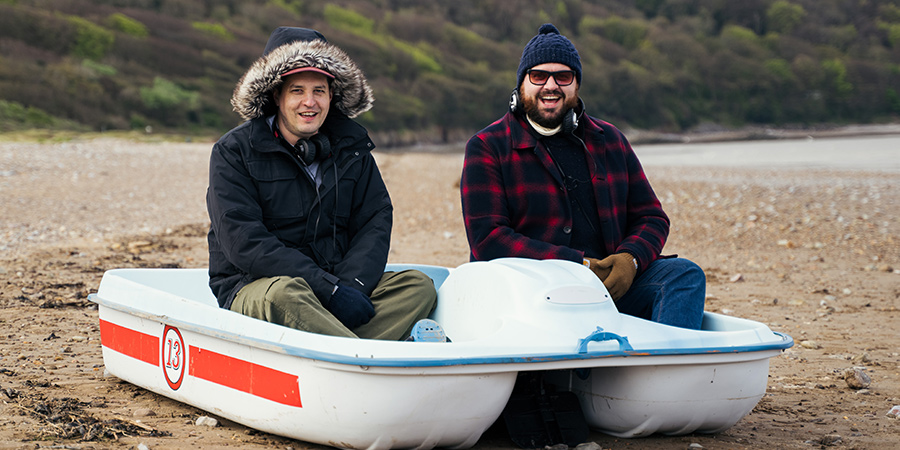
Martin: I saw a seagull swallow down an entire battered sausage in Broadstairs. One glug. Inspirational stuff.
Alex: Ever seen a tandem mobility scooter? We have.
How are you paid?
Alex: In terms of being paid to develop work, the UK isn't the most generous. If we're working for the US market, things are better. Once you're actually employed on a series, it depends who you're writing for.
Martin: We are producers as well, so that's an additional income.
If you could change one thing about the comedy industry, what would it be?
Alex: The UK market paying more for writers to develop ideas. It's a great deal of work and writers should be more recognised for the lengthy hours they do.
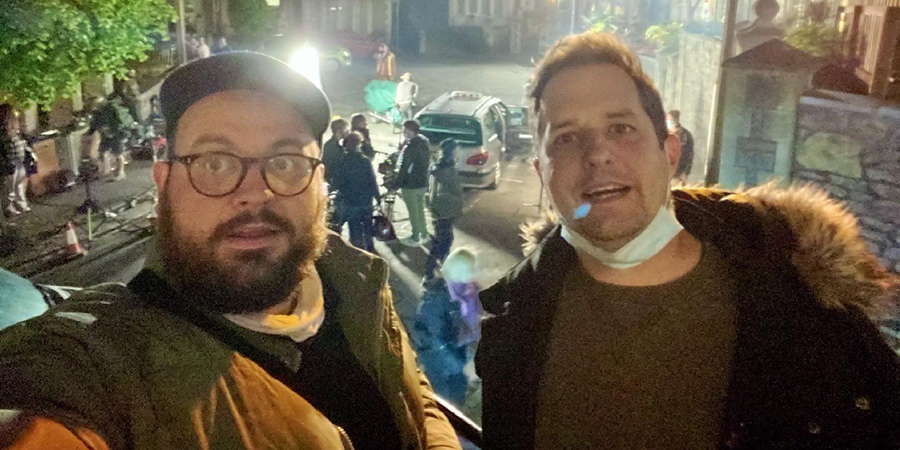
What tips would you give for anyone looking to work in your area of the industry?
Alex: Make stuff. Whether it's filming your mates on your phone or putting on performances - start small with sketches / short films and build your skills up.
Martin: Start with short scripts. New writers coming to me saying I've written a film or something is terrifying. I would encourage anyone to start with a sketch. Restrict yourself to 3/4 mins, so many comedy scenes are based around these lengths and rhythms.
Arrive at the scene as late as possible, not always, but be precise!
Learn how to make characters immediate and stand. Get Final Draft and learn the way a script works.
Try and get it filmed. Seeing your writing is the best way to learn. There's nowhere for it to hide. Then work harder than anyone else around you and go with your gut and the opinions of those you trust.
Be prolific, it's far greater skill than coming up with one magic idea.
But at the end of the day, just go for it. It's a great privilege to make people laugh!
Sandylands is available to watch anytime via Sky On Demand or NOW TV.

